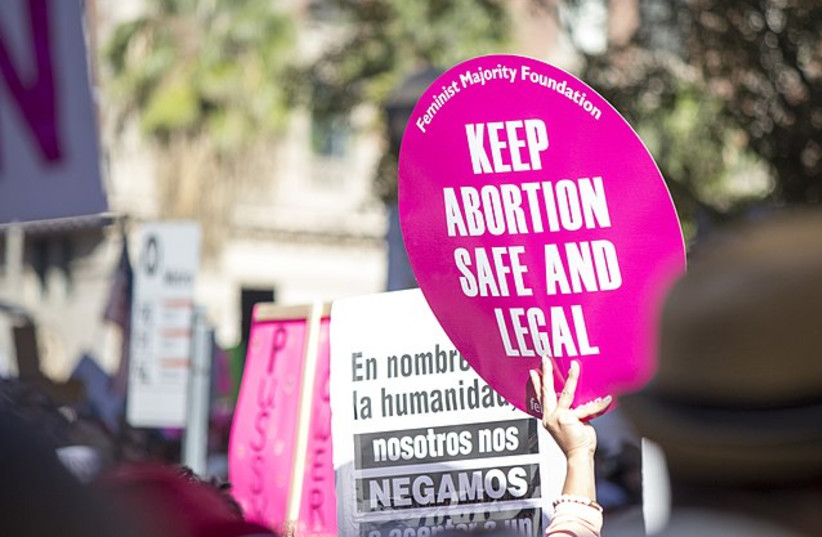Last year’s brutal political barrage from the Netanyahu government under the influence of Justice Minister Yariv Levin on Israel’s High Court of Justice/Supreme Court, leading to divisiveness and violence, is not unique. The US Supreme Court is also under attack.
For decades, the US Supreme Court was viewed as one of the few American institutions respected by both Democrats and Republicans alike. It was seen as a legal institution, not a political one, strengthened by its “norms, processes, symbols, and independence” and was granted greater public trust and legitimacy than most other institutions. Even as trust in other American institutions declined sharply in recent decades, the Supreme Court had remained immune.
But that privileged status has evaporated. New research led by the Annenberg Public Policy Center of the University of Pennsylvania finds that the court’s “special status has evaporated” and that the court’s dramatic shift to the right – capped by the 2022 ruling in Dobbs v. Jackson Women’s Health – has upended that favored relationship and polarized the public’s view of the court along partisan lines for the first time in decades. The court’s shift, capped by the 2022 Dobbs ruling, polarized views along partisan lines for the first time in decades,
These findings have just been published in the journal Science Advances under the title “Has the Supreme Court become just another political branch? Public perceptions of court approval and legitimacy in a post-Dobbs world,”
In its June 24, 2022, Dobbs ruling, the Supreme Court overturned the popular, half-century-old Roe v. Wade decision establishing a constitutional right to abortion. Roe v. Wade was a landmark ruling that declared that the Constitution generally protected the right to have an abortion.

The decision struck down many abortion laws and caused an ongoing conflict about whether, or to what extent, abortion should be legal; and what the role of moral and religious views in the political sphere should be. who should decide the legality of abortion, and which methods the court should use in constitutional debate to decide a dispute?
Overturning the court's right
But then two years ago, Dobbs v. Jackson was ruled by the court stating that the court does not confer a right to abortion, thereby overruling the previous decision.
“The most important takeaway is that pre-2022, pre-Dobbs, there is no real evidence of political polarization in the public’s views of the Supreme Court,” said lead author and political science Prof. Matthew Levendusky of the university’s School of Arts and Sciences.
“We have data from the Annenberg Public Policy Center’s surveys going back to 2006,” Levendusky said, “and on occasion we see trust and approval bounce around a bit between Democrats and Republicans. But starting in 2022, we see very clear views of partisan polarization of the court so that post-Dobbs, those who support abortion access or are Democrats think much less of the court, while people who are Republican or disapprove of abortion think highly of the court.”
Using 18 nationally representative surveys spanning nearly 20 years, the study found little evidence of partisan polarization in the earlier years – but in 2022 and 2023, evidence of polarization is clear in measures of favorability, trust, legitimacy, and support for reform of the court.
Knowledge of the court and support for key democratic values no longer protect the court in the way that they once did. “These findings suggest that at least part of the public increasingly sees the Court as politicians in robes, with troubling implications for its role in our democracy,” the team wrote.
For most of the past two decades, partisanship had only a weak effect on views about the court’s legitimacy, the researchers said. This changed in 2022 and held in 2023. Democrats saw the court as less legitimate and Republicans saw it as more so.
According to Levendusky, Democrats thought that the court was “too mixed up in politics,” favored stripping its jurisdiction on certain issues, thought that its power should be reduced and it should be made less independent, and thought that the justices used their political beliefs, not the law, to decide cases.
“The stark polarization that existed in 2022 endures, and this is quite worrying,” the researchers said. “A significant part of the public now sees the Court as just another political branch, not a legal institution above politics.”
